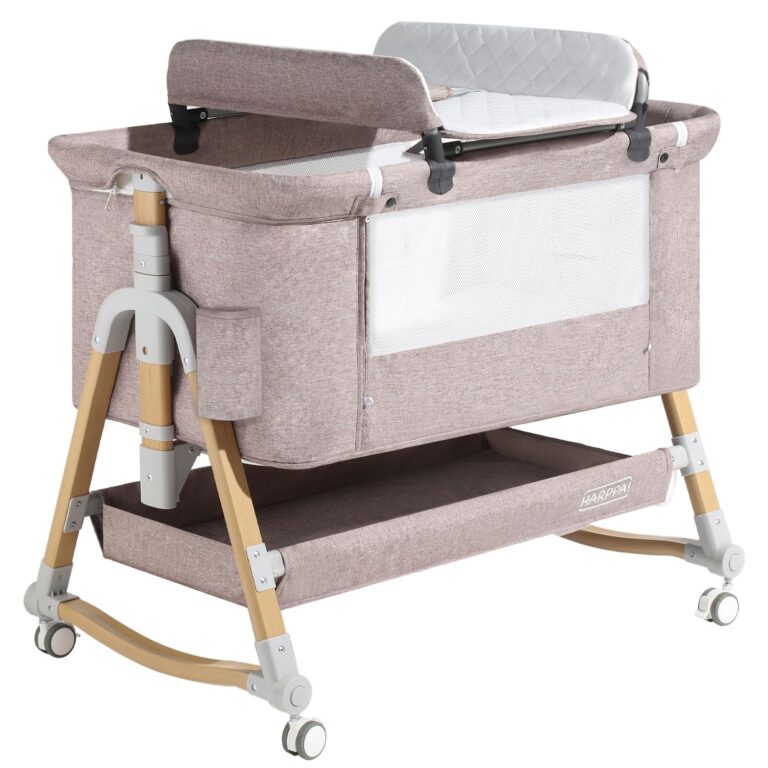How Long Should Newborn Night Feeds Take: Expert Guidelines
Newborn night feeds should typically take about an hour to complete. It is important to remember that each feeding session may vary in length, but on average, it should take about an hour for both the baby to feed and for everyone to get back to sleep.
This ensures that the newborn is adequately nourished and allows for a smooth transition back to sleep. It is common for breastfed babies to be fed on demand, so they may need to eat more frequently during the night. However, this timeframe serves as a general guideline for newborn night feeds.
Understanding Newborn Night Feeding
Understanding newborn night feeding and how long it should take can be a challenge for parents. While it is recommended to feed newborns on demand, a typical feeding session may take about an hour, although this can vary for each baby.
It’s important to be patient and flexible during this time.
Importance Of Night Feeding For Newborns
Night feeding is not only essential for the growth and development of newborns but also plays a crucial role in establishing a strong bond between parents and their baby. During the first few months, newborns have tiny tummies and need frequent feedings to meet their nutritional needs. Feeding at night ensures that the baby gets enough nourishment and helps in maintaining a consistent milk supply for breastfeeding mothers. It also aids in promoting healthy sleep patterns and ensures that the baby feels secure and comforted throughout the night.How Newborns’ Feeding Patterns Differ From Older Babies
Understanding the feeding patterns of newborns is essential for parents as they navigate the early stages of parenthood. Unlike older babies, newborns have smaller stomachs and require more frequent feedings, including during the night. Their tiny tummies can only hold small amounts of milk at a time, which is easily digestible. Due to these factors, it is common for newborns to wake up multiple times during the night for feeding, typically every 2-3 hours. As babies grow older, their stomachs expand, enabling them to consume larger quantities of milk, which leads to longer gaps between feedings.Expert Recommendations For Newborn Night Feeding
When it comes to newborn night feeding, there are a few expert recommendations that can help ensure the baby’s well-being and a peaceful night’s sleep for everyone in the family. These recommendations include:- Feed on demand: Breastfed babies should be fed on demand, meaning as soon as they show signs of hunger, irrespective of the time. This ensures that the baby receives adequate nutrition and helps in establishing a healthy milk supply for breastfeeding mothers.
- Create a soothing environment: During night feedings, it is crucial to create a calm and soothing environment for the baby. Dim the lights, keep the room quiet, and minimize stimulation to help the baby settle back to sleep after feeding.
- Practice safe sleep: Ensure that the baby is placed on their back in a safe sleep environment, following the guidelines set by pediatricians to reduce the risk of Sudden Infant Death Syndrome (SIDS). Once the feeding is complete, gently put the baby back to sleep in their crib or bassinet.
- Pace the feedings: During night feedings, it is important to pace the feeding session to ensure the baby is getting a full feed. This means allowing the baby to nurse at their own pace, ensuring they are adequately swallowing and taking breaks when necessary.
Factors Affecting Duration Of Night Feeds
The duration of night feeds can vary for newborns depending on several factors. Understanding these factors can help parents manage their baby’s feeding routine effectively. Here are some key factors that can influence the duration of night feeds:
Baby’s Age And Weight
The age and weight of the baby play a significant role in determining the duration of night feeds. As newborns grow, their feeding requirements change. Younger babies might require shorter feeding sessions, while older babies with a greater weight might nurse or bottle-feed for a longer time to fulfill their nutritional needs.
Baby’s Feeding Method (breastfeeding Or Bottle Feeding)
The method of feeding, whether breastfeeding or bottle feeding, can also affect the duration of night feeds. Breastfed babies may require more frequent feeding sessions compared to bottle-fed babies because breast milk gets digested more quickly. Breastfeeding sessions may take longer as babies need to actively suckle and regulate their milk intake.
Growth Spurts And Developmental Milestones
Growth spurts and developmental milestones can impact a baby’s appetite and feeding duration, including during night feeds. During growth spurts, babies tend to eat more frequently and for longer durations. Similarly, when babies are going through developmental leaps, such as learning a new skill or going through a growth milestone, they may demand more frequent or prolonged night feeds to support their increased energy needs.
Baby’s Overall Health And Appetite
A baby’s overall health and appetite can also contribute to the duration of night feeds. If a baby is unwell or experiencing any discomfort, such as teething or digestive issues, they may exhibit a reduced appetite or be more fussy during night feeds, which can extend the feeding duration. Conversely, if a baby is healthy and has a healthy appetite, the duration of their night feeds may be shorter.
Mother’s Milk Supply And Breastfeeding Techniques
The mother’s milk supply and breastfeeding techniques can impact the duration of night feeds for breastfed babies. If the mother’s milk supply is low, it might require longer feeding sessions to ensure the baby gets enough nourishment. Additionally, breastfeeding techniques, such as latching issues or ineffective milk transfer, can prolong the feeding duration. Seeking support from a lactation consultant can help address these issues and improve the feeding experience.
In summary, the duration of night feeds can vary depending on several factors, including the baby’s age and weight, feeding method, growth spurts and developmental milestones, overall health and appetite, as well as the mother’s milk supply and breastfeeding techniques. Understanding these factors can help parents navigate their baby’s feeding routine during the night and ensure they are receiving adequate nutrition for their growth and well-being.
Average Duration Of Newborn Night Feeds
Understanding the average duration of newborn night feeds can help new parents have realistic expectations and provide the best care for their little ones. It is important to remember that every baby is unique and individual feeding patterns may vary. However, having a general idea of recommended feeding durations can be helpful in establishing a routine and ensuring that your baby is getting the nourishment they need.
Recommended Feeding Durations For Newborns
The average duration of newborn night feeds can range from 15 minutes to 40 minutes per feeding session. It’s important to note that some babies may take longer to feed, especially if they are breastfeeding, as it requires more effort for both the baby and the mother. On the other hand, bottle-fed babies may finish their feeding sessions more quickly due to the difference in milk flow.
How Often Should Newborns Be Fed At Night
Newborns have small stomachs and require frequent feedings, including during the night. It is recommended to feed newborns every 2-3 hours, or whenever they show signs of hunger. This means that you may find yourself waking up throughout the night to attend to your baby’s needs. It is important to establish a feeding routine that suits both you and your baby, ensuring that they are getting enough nourishment while also allowing you to get some rest.
Common Variations In Feeding Durations
While the average duration of newborn night feeds falls within the 15-40 minute range, it is not uncommon for variations to occur. Some babies may prefer shorter, more frequent feedings, while others may take longer to feed. Additionally, certain factors such as growth spurts, sleepiness, or temporary changes in appetite can affect feeding durations. It’s important to pay attention to your baby’s cues and allow them to feed until they are satisfied, regardless of the duration.
Overall, understanding the average duration of newborn night feeds can provide new parents with a frame of reference to establish a feeding routine. However, it’s important to remember that each baby is unique and may have their own feeding pattern. By paying attention to your baby’s cues and adjusting their feeding routine accordingly, you can ensure that they are getting the nourishment they need while also promoting healthy sleep patterns.
Tips To Optimize Night Feeding Duration
Looking for tips to optimize the duration of night feeding sessions for your newborn? Discover how long these feeds should ideally take to ensure your baby’s nutritional needs are met without disrupting their sleep patterns.
Creating A Calm And Comfortable Feeding Environment
One of the key factors in optimizing night feeding duration is to create a calm and comfortable feeding environment for your newborn. Dim the lights in the room to create a soothing ambiance and minimize distractions. Use a comfortable nursing chair or support pillows to ensure proper positioning and reduce strain on your back or neck. Keeping the room at a comfortable temperature can also help your baby relax during the feeding.
Ensuring Effective Latch And Proper Positioning
Another important aspect of optimizing night feeding duration is to ensure an effective latch and proper positioning. A good latch is essential for efficient feeding and can help prevent discomfort and nipple pain for breastfeeding mothers. Make sure your baby’s mouth covers a large portion of the areola, not just the nipple. Supporting your baby’s head and neck with your hand can help maintain a proper position and aid in swallowing.
Using Feeding Cues To Determine When To End A Feed
Understanding your baby’s feeding cues is crucial in determining the appropriate duration for a night feed. Watch for signs such as slowing down of sucking, turning away from the breast, or falling asleep at the breast. These cues indicate that your baby may be full and ready to end the feeding. Trusting your baby’s instincts and recognizing these cues can help prevent overfeeding and prolonging the feeding session unnecessarily.
Strategies To Help Newborns Fall Back Asleep After Feeding
After a night feed, it is important to establish strategies that help your newborn fall back asleep. Keeping the lights dim and avoiding stimulating activities can send signals to your baby’s brain that it’s time to sleep. Gentle rocking, swaying, or using a pacifier can help soothe your baby back into a calm and relaxed state. Remember to put your baby back into the crib or bassinet while drowsy, but still awake, to encourage self-soothing and independent sleep skills.
Monitoring And Assessing Newborn Feeding Patterns
Monitoring and assessing newborn feeding patterns is essential for understanding how long newborn night feeds should take. By keeping track of feeding duration, parents can ensure their baby is getting the proper nutrition and monitor any changes or concerns.
Keeping Track Of Feeding Times And Durations
When it comes to monitoring and assessing newborn feeding patterns, it’s important to keep track of their feeding times and durations. By keeping a record of when your baby feeds and how long each feeding session lasts, you can gain valuable insights into their feeding habits and ensure they are getting enough nutrition.
One way to keep track is to use a feeding log or a baby tracking app that allows you to record the time and duration of each feeding session. This can help you identify any patterns or trends in your baby’s feeding behavior and enable you to make adjustments as needed.
Additionally, maintaining a feeding schedule can provide structure and stability for both you and your baby. By establishing a routine, you can help regulate their feeding pattern and create a sense of predictability for their night feeds.
Signs Of Adequate Milk Intake During Night Feeds
During night feeds, it’s important to ensure that your baby is getting enough milk to support their growth and development. While it can be challenging to assess milk intake during the dark hours of the night, there are some signs that can indicate your baby is adequately feeding:
- Active sucking and swallowing sounds: If you hear your baby actively sucking and swallowing, it’s a good indication that they are getting a sufficient amount of milk.
- Weight gain: Regular weight gain can be a positive sign that your baby is receiving enough milk during their night feeds.
- Satisfied and content after feeding: After a feeding session, your baby should appear content and satisfied.
- Frequent wet diapers: A well-hydrated baby will produce an adequate number of wet diapers throughout the day and night.
These signs can help reassure you that your baby is obtaining enough nourishment during their night feeds.
When To Seek Additional Support Or Medical Advice
While it is normal for newborns to wake up frequently for night feeds, there are certain instances where seeking additional support or medical advice may be necessary. If you notice any of the following signs or symptoms, it is important to reach out to your healthcare provider:
- Lack of weight gain or poor weight gain
- Frequent or prolonged periods of crying or fussiness during and after feeds
- Excessive sleepiness or lethargy
- Signs of dehydration, such as infrequent urination or dark-colored urine
- Difficulty latching or feeding
Your healthcare provider can provide guidance and support to ensure that your baby is receiving optimal nutrition and address any concerns you may have.

Credit: nfamilyclub.com
Frequently Asked Questions Of How Long Should Newborn Night Feeds Take
Is A 10 Minute Feed Long Enough For A Newborn At Night?
A 10 minute feed is usually long enough for a newborn at night. They may want to eat more often during the night, and each feeding session can take about an hour. However, every baby is different, so it may take a little more or less time for them to finish a feed and go back to sleep.
How Long Should Nighttime Be For Newborn?
Newborn nighttime feeds should take about an hour to complete, but it may vary for each baby. Breastfed babies may need to eat more often at night, as they are fed on demand. It is normal for newborns to wake up multiple times during the night for feeding.
Can A Newborn Go 4 Hours Without Eating At Night?
A newborn typically needs to eat every 2-3 hours, so they may not be able to go 4 hours without eating at night. Breastfeeding babies should be fed on demand, as they may want to eat more often during the night.
Each feeding session usually takes about an hour.
What Is A Newborn’s Feeding Routine At Night?
A newborn’s feeding routine at night varies, but typically it takes about an hour to complete each feeding session. Breastfed babies may want to eat more often than this during the night. It’s important to feed on demand and allow enough time for everyone to get back to sleep.
Conclusion
The duration of newborn night feeds can vary, but it is generally recommended that they take around an hour. This allows your baby to get the nourishment they need while also giving them time to settle back to sleep. However, every baby is different, and feeding times may vary.
It’s important to follow your baby’s cues and feed them on demand. Remember, as your baby grows, their feeding patterns will change, and night feeds will eventually become less frequent. Trust your instincts and consult with your pediatrician for personalized guidance.







